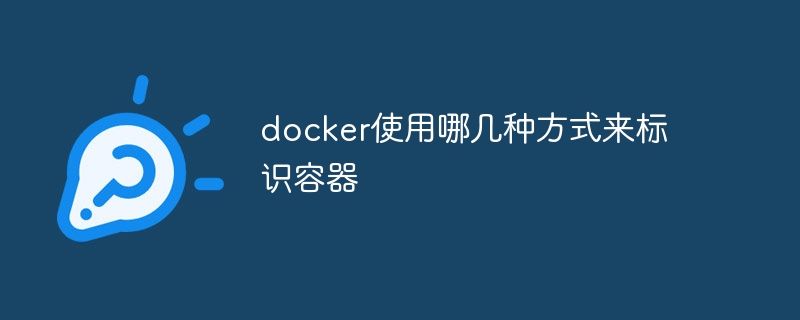Docker uses the following four methods to identify containers: 1. Unique and immutable 64-bit container ID; 2. Customizable container name; 3. Marking different versions of Docker image labels; 4. Container ports map to host ports.

Docker uses the following 4 ways to identify containers:
1. Container ID
- Each container has a unique, randomly generated 64-digit hexadecimal string ID.
- This ID is assigned when the container is created and remains unchanged throughout the container life cycle.
- You can view the container ID through the
docker ps command.
2. Container name
- When creating a container, you can specify a name for the container.
- Container names must be unique and cannot contain special characters.
- You can view the container name through the
docker ps command.
3. Image tags
- Docker images can be tagged with different versions or variants.
- When creating a container, you can specify the image tag to use.
- You can view the image tag used by the container through the
docker ps --format '{{.Image}}' command.
4. Port Mapping
- Containers can expose ports to allow access from the host.
- When creating a container, you can specify port mapping to map the container port to the host port.
- You can view the port mapping of the container through the
docker ps -p command.
The above is the detailed content of What methods does docker use to identify containers?. For more information, please follow other related articles on the PHP Chinese website!
Statement:The content of this article is voluntarily contributed by netizens, and the copyright belongs to the original author. This site does not assume corresponding legal responsibility. If you find any content suspected of plagiarism or infringement, please contact admin@php.cn
